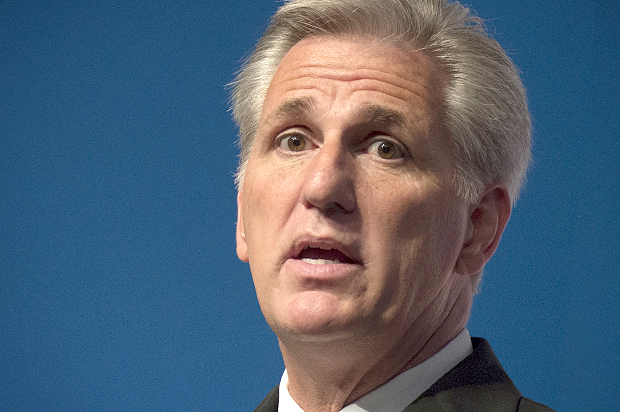Earlier this week, long-shot Republican presidential candidate Rick Santorum gave voice to one of the GOP’s great hopes heading into 2016: the opportunity to finally – finally – repeal the Affordable Care Act through a process known as budget reconciliation. “You give me 50 United States senators and a Republican House,” Santorum told the Weekly Standard, “and we can de facto repeal Obamacare through reconciliation. Take all the money out and make it impotent.”
Ever since the GOP took control of the Senate in the midterm elections, the Obamacare/reconciliation debate has always been aimed squarely at influencing the presidential election. Pursuing repeal through budget reconciliation would allow Republicans in the Senate to obviate a Democratic filibuster and send the measure to President Obama’s desk, where it would be promptly vetoed. Then the Republicans would take their argument to the people and say that a repeal of the healthcare law is indeed possible, but only if they elect a Republican president (and reelect a Republican Senate) in 2016.
Rick Santorum is obviously ready to make the case. All he needs is for Republicans in Congress to actually get around to using reconciliation to take on the Affordable Care Act. But the GOP leaders in the House and Senate – their stated urgency to kill Obamacare notwithstanding – don’t seem to be in any sort of hurry.
A couple of weeks ago I wrote about how the Supreme Court’s decision in King v. Burwell put a huge kink in the GOP’s plans to repeal Obamacare. They were clearly banking on the court’s conservative justices to blow up the law and do most of their dirty work for them, but that didn’t happen, and so full responsibility for repeal devolved to Congress. After the decision came down, conservatives in the House renewed their push to go forward with repeal through reconciliation, as prescribed by the House- and Senate-passed budget resolutions. But key Republicans on the relevant committees demurred and suggested that they may not meet the self-imposed July 24 deadline for submitting language that would repeal portions of the ACA.
Well, this week House majority leader Kevin McCarthy confirmed what everyone already suspected: Repeal through reconciliation will be put on hold for the foreseeable future. As reported by The Hill:
McCarthy acknowledged Republicans will miss Friday’s deadline to outline plans for reconciliation, though he dismissed the deadline as more of a guideline than a mandate.
“We will not put anything out by July 24. It’s not a hard and fast deadline,” McCarthy said.
[…]
McCarthy said a bill to repeal ObamaCare could come in September, but wouldn’t commit to the possibility.
“I don’t think there’s a reason why we have to hurry. So you will see something later,” McCarthy said. “It’s something we need to do and we will, but it’s not by July 24.”
A delay in Republican healthcare policy? Who would have imagined such a thing was possible … If I’m a conservative, I’m pretty upset right about now, given that the leadership agreed to pursue reconciliation and repeal as an inducement to get conservatives to vote for the budget resolution in the first place.
There are a number of factors tripping up the GOP here, most importantly the strings and conditions that come with passing legislation through budget reconciliation. You can’t use reconciliation to pass legislation that increases the deficit, and the Republicans were just recently shocked to learn that repealing Obamacare would do exactly that. Cutting spending elsewhere as a means to get around that hurdle raises a whole host of political problems that the leadership clearly haven’t quite worked out yet. The story of the most recent era of Republican congressional rule has been the inability of the leadership to balance the demands of the hardcore conservatives with the practical concerns of competent governance, and this would seem to fit nicely within that pattern.
It also fits in with the pattern of Republicans’ promising action on healthcare reform, and then flaking out. Back when King v. Burwell was still an unresolved matter, the GOP swore up and down that they’d have an Obamacare replacement ready to go when the court ruled against the ACA. But as decision time neared, McCarthy backed off that promise and refused to divulge what the party had been working on. In January 2014, then-House Majority Leader Eric Cantor promised the House would vote on an Obamacare replacement before the year was out. That never happened, and seven months later Cantor was out of office.
Boehner made a similar promise this past January, telling Fox News that an Obamacare replacement would emerge in 2015 and that three committee chairs were working on drafting the legislation. “There will be an alternative, and you’re going to get to see it,” he said. He still has time to make good on that pledge, but given the party’s track record and the fact that the GOP can’t even seem to figure out how to repeal the law they want to replace, it’d be best not to get your hopes up.

